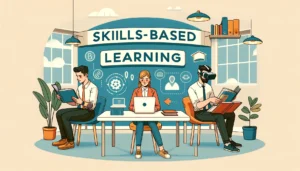The impact blockchain can have on your business
- 6 Min Read
Luck Kovic, Head of Partnerships at Applied Blockchain talked to us about the benefits of Blockchain, and what positive impact it can have on businesses.
- Author: Luck Kovic
- Date published: Feb 22, 2019
- Categories

It was at a very engaging dinner that The Supper Club – an entrepreneur community for founder-led businesses – hosted last Tuesday when the conversation on blockchain ended up where it always should. I was speaking to a serial entrepreneur – on her third business – and she’d identified a potential opportunity for the theoretical benefits of blockchain to her new venture.
“Do you have a successful commercial and operating model without blockchain” I asked. “Yes” was the affirmative reply.

This was refreshing, and I was delighted to discuss her business in more detail. Now, this may be a strange stance for I – a blockchain consultant – however, part of our work is explaining and introducing the technology. We don’t push a draconian “fall in line or you’ll be consumed by superior business models” message.
This, in essence, is what I hope this article can provide. A brief introduction to the technology. What it can and can’t do. Where it can work, where it does work, what its main challenges are and most excitingly where can this all go? You’ll have to indulge me a level of fantasy here.
What is blockchain?
Blockchain is a group-secured database. A database that is distributed and is made more secure because each of the members contributes to it’s security by keeping a record of the database / ledger.
This ‘group database’ acts as a base layer on which parties can more easily and securely share ‘things of value’, for example, records of asset ownership, historical records of an agreement, and even tokens of value.
To fully understand the benefits of blockchain we need to establish the difference between the two types of blockchain; Public and Private.
Public (most famous use is cryptocurrencies, spearheaded by Bitcoin). These are genuinely decentralised networks available to anyone to participate. Public networks offer the greatest level of trust and security in the blockchain (here the blockchain is a ledger of all transactions). However, they pose challenges with the speed and cost of transactions for broader adoption and they fall short on aspects required for enterprise-grade applications.
To facilitate the adoption of technology, developers and businesses alike started working with Private networks.
The very notion of a private blockchain will distress purists and understandably so. By using the technology in a controlled environment, that is to say, the participants are curated or involved by invitation only then the decentralised element can be questioned. So too can how distributed the network is. However, Private networks offer solutions to scalability issues posed by public networks and are crucial to the broader adoption of the technology. Private blockchain platforms like Fabric, Corda and Quorum are Private blockchains being built for purpose without the use of cryptocurrencies. Sacrifices made in trust and security provide benefits in speed and cost of transactions. The curated network also becomes easier to implement in businesses with a less complicated governance model.
Why would a business integrate blockchain?
The revolutionary benefits of blockchain
- Tamper Proof; an encrypted record of events that can never be tampered with
- Peer to Peer; Indirect interactions across the network without the need for intermediaries
- Innately Secure; Inbuilt encryption and consensus mechanisms provide high resistance to network attacks
- Reconciled Data; Perfect copies of a database distributed across all participants, meaning no requirement for reconciling data
- Smart Contracts; A store of code and data to automate business processes between parties via self-executing logical workflows
Where can it be applied?
Looking at its benefits above we can point to the following live use cases;
- Human Resources; career and educational verification stored permanently on chain
- Buying Property; transacting directly with homeowners and lenders; reduce the need for intermediaries in mortgage brokers and estate agents
- Social Bank; Provide identities via biometrics for the unbanked. This enables the foundation of credit facilities which need to have a robust infrastructure
- Global Treasury; using blockchain to manage transaction books between group or external counterparties provides greater efficiency
- Supply Chain; having smart contracts automatically execute settlements or the recording of signed documentation as goods move up the supply chain reduces man hours and errors
What are its limitations?
The technology is very nascent. Mobile phones used to be rucksacks on our backs and the internet was an intranet with very few use cases. Blockchain is still in its infancy and that needs to be respected.
If we are looking at the application of the technology in enterprise, we can assume the removal of cryptocurrencies and the complications public networks provide. However, this isn’t the perfect solution. Many challenges are still to be solved in each deployment.
- Governance / regulatory framework; who owns the “blockchain” ? who is liable in light of breaches, collapses and errors in the software that cause monetary loss?
- Node Hosting; Who will carry a copy of a ledger ? Why ? How can they be incentivised ? What security and policy challenges does this pose ?
- Key Management; How do you recover your private key (required for all actions on chain) if you lose it ? Who holds it ?
- The community; whilst growing, supportive and increasing in quality of participants is heavily fragmented. There are many all building towards the same goal with an individual agenda. For example, if you look at the underlying protocols to be used by enterprise you have Fabric (IBM), Corda, Quorum (JP Morgan led). All different and new technologies with a lack of interoperability.
Where can it all go?
However, I am adamant these challenges will be surpassed. Mankind has a track record of exponentially improving on major technological breakthroughs dating all the way back to the telephone at the start of the last century. There is too much talent and money in the space for it to stagnate.
Applied Blockchain have launched in a production environment a derivatives trading platform for Shell, the enterprise grade Vakt solution is coming, Verv are transacting in real data with households in a peer to peer energy market. Grass roots of real, live, platforms being used have emerged. The smartphone is coming.








